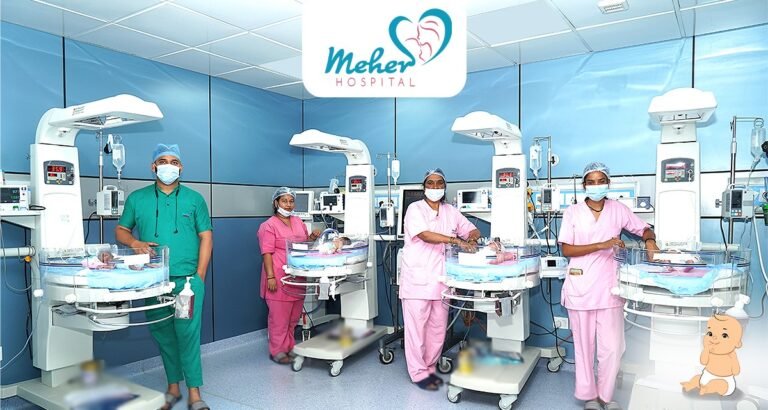Newborns are particularly vulnerable just after birth, susceptible to congenital conditions and easily prone to infections. For new parents, understanding and addressing the common health challenges or diseases that babies may face is essential for providing optimal care.
Typically, infants who are breastfed and surrounded by a hygienic environment are less likely to contract illnesses. However, in India, statistics show that 3 out of every 100 babies experience health issues.
So on that note, let’s delve into some common diseases of newborn babies you should be aware of:
Preterm Birth/Low Birth Weight
One common issue that arises from premature birth is characterized by the baby being delivered early and having a low body weight.
In India, approximately 40% of newborns weigh less than 2.5 kilograms, with those weighing 2 or 1.5 kilograms facing challenges related to prematurity or low birth weight.
These babies often encounter difficulties in maintaining body temperature, face breastfeeding issues and are susceptible to jaundice thus necessitating care in the Neonatal Intensive Care Unit (NICU).
About 15% of babies in India are premature and require NICU attention.
Infections
Newborn babies possess limited immunity which makes them highly susceptible to infections transmitted through hands and clothes.
In such situations, It is vital that everyone around the newborn maintain cleanliness by washing and scrubbing their hands before contacting the baby.
Infections such as pneumonia, blood infections and brain infections represent a common health challenge and if newborns get these illnesses, they must be hospitalized in the NICU.
Jaundice
A widespread ailment globally, jaundice in babies is often linked to the immaturity of the liver, termed physiological jaundice. While the majority of cases resolve within 3-4 days, approximately 5-6% may require phototherapy.
Notably, if the mother has a negative blood group or O+ blood group, babies with a positive blood group or A/B blood group may experience more severe jaundice due to faster breakdown of red blood cells.
In simple terms, kids delivered to moms with a negative blood group and an O+ blood group require special care.
Difficulty in Breathing
Decreased surfactant levels in the lungs can lead to breathing difficulties thus requiring babies to be placed on ventilators.
Medically termed Respiratory Distress Syndrome (RDS), this condition demands careful monitoring and intervention.
Birth Defects
Congenital disorders, affecting 3-5% of newborns, encompass various birth defects, with 40-50% detectable through prenatal sonography.
However, not all anomalies are identifiable through this method.
Babies with congenital anomalies, particularly those involving the heart and brain, often require admission to the NICU.
Wrapping Up
While many health issues in newborns resolve with time, parents must remain vigilant. Regular check-ups with a pediatrician, maintaining hygiene and promptly consulting a doctor if any discomfort arises are crucial steps in ensuring the well-being of the newborn.
However, if you are still unsure about how and where to begin then Meher Hospital is the safest option. This is because, amid Dehradun’s huge array of hospitals, Meher Hospital stands out not only as an alternative but also as a sign of trust and expertise.
Our commitment to quality, along with the knowledge of seasoned experts and the latest technology, guarantees that the healthcare of a child remains a priority while maintaining high standards.

